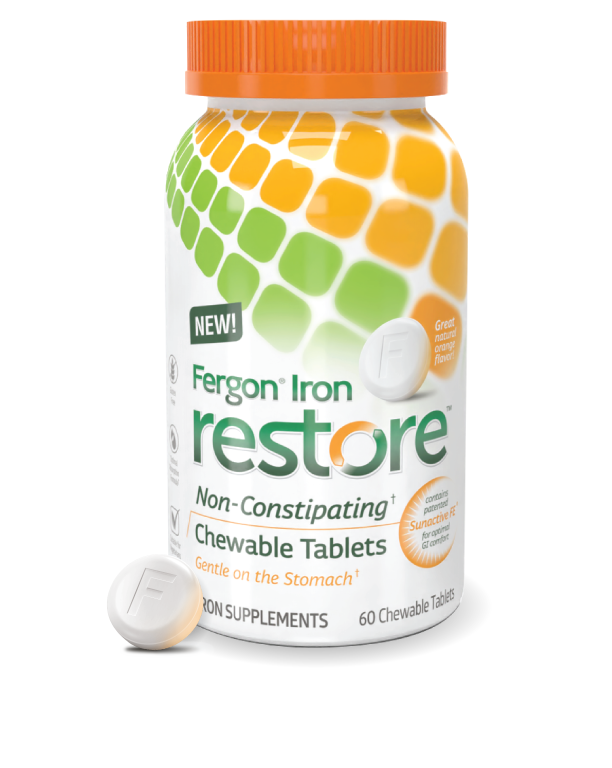Iron deficiencies cause a variety of symptoms in men, women, and children. But one of the lesser-known side effects of low iron is hair loss.
Here are some details about how iron deficiencies can cause hair loss and how a condition called telogen effluvium can be triggered by low iron levels as well.
How Iron Deficiencies Cause Hair Loss
When the body doesn’t have enough iron to produce hemoglobin, a deficiency results and oxygen cannot be transferred to the bodily cells for growth and repair.
Hair follicles are made up of cells that require hemoglobin as well, which means that low iron levels often result in hair falling out and slow hair growth.
Since hair loss is less common among women, one common reason that women start losing more hair is due to low iron. In cases of iron deficiency, hair loss is often one of several symptoms and accompanied by fatigue, pale skin, brittle nails, or a cold body temperature. Women in particular are more susceptible to low iron because of their menstrual periods. Women who eat a poor-quality diet, frequently donate blood, or who take certain medications may be at an even higher risk for iron deficiency-related hair loss.
What is Telogen Effluvium?
The average person loses about 100 hairs per day. But in healthy individuals, a majority of the hairs on one’s head are still growing. Telogen effluvium is a condition in which more hairs enter a resting period known as the telogen phase. This means that existing hairs stop growing before they fall out. Someone who has telogen effluvium may lose more like 300 hairs per day instead of 100.
This condition is often caused by an iron deficiency, but that is not the only cause. For example, a major trauma, psychological stress, surgery, and some medications can cause this condition as well. People who have telogen effluvium often notice more hairs coming out in their brushes and combs and a reduced density of hairs on the head. Although these results tend to be subtle, they can be emotionally scarring and cause devastating losses of confidence and self-esteem.
Prevention Strategies for Women
Hair loss is most often associated with men, but women also frequently lose their hair at various stages of life. Iron supplements like Fergon can help women prevent iron deficiency-related hair loss before it becomes a major issue in daily life.
This high-potency supplement can be easily digested and replenishes the iron in the blood cells quickly. Iron-rich foods like liver and beef can help replenish iron supplies in the body too. Healthy non-meat sources of iron include lentils, tofu, chickpeas, and raisins. Since vitamin C helps the body absorb iron, it is also important to eat citrus fruits, berries, and leafy greens to get an adequate supply of this vitamin.
However, it should be noted that there are many other serious medical conditions that can cause hair loss in women and men. Always seek an accurate diagnosis from a trusted doctor before taking any supplement to treat a perceived condition.

